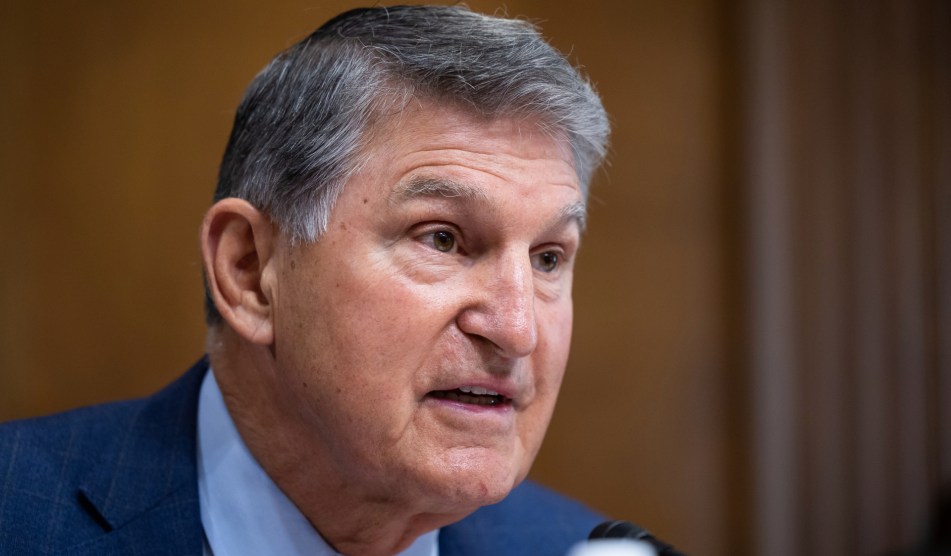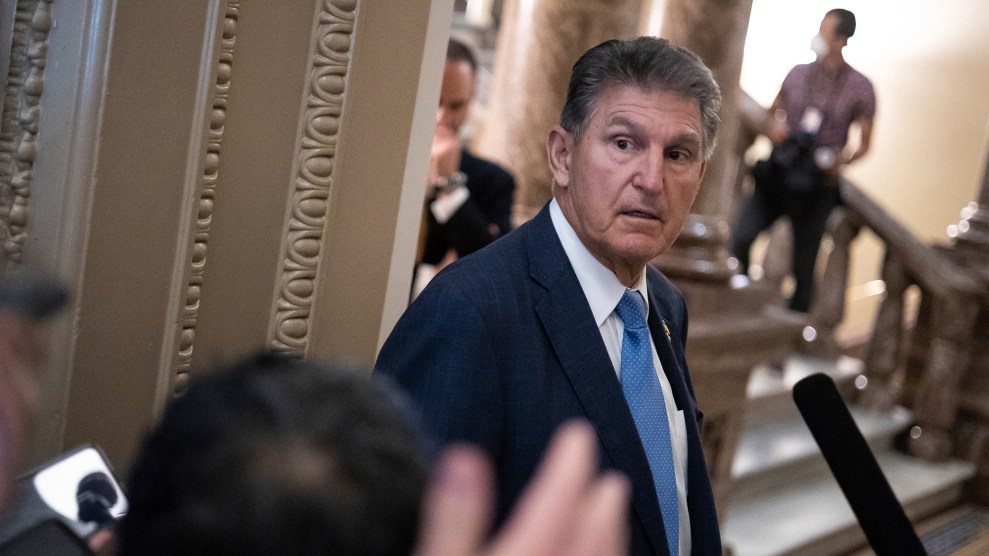
Senator Joe Manchin speaks during a hearing on Capitol Hill.Francis Chung/Politico/AP
In an interview yesterday with Fox News host Sean Hannity, Senator Joe Manchin (D-W.V.) threatened to repeal the Inflation Reduction Act (IRA), President Joe Biden’s signature piece of legislation from his first term—the bill that Manchin himself was instrumental in negotiating.
In Manchin’s telling, Biden and Senate Majority Leader Chuck Schumer (D-N.Y.) broke a promise to him, and the American people, that the IRA was about “energy security.” Now, to the senator from West Virginia’s objection, the IRA has become solely about the “environment.”
“We have the gas. We have the oil. We have the coal,” Manchin insisted as he pushed for the United States to produce more fossil fuels. “We can do it better and cleaner than anywhere in the world.”
The Biden administration is breaking its word to the American public by ignoring the text of the #InflationReductionAct to pursue its radical climate agenda. Let me be clear: if this continues, I'll do everything in my power to stop them — including voting to repeal the IRA. pic.twitter.com/d1l4SUUYcN
— Senator Joe Manchin (@Sen_JoeManchin) April 25, 2023
Neither Hannity—who introduced Manchin’s appearance by saying “[Biden] went along with the climate alarmist cult”—nor Manchin mentioned the Willow Project, a massive arctic drilling project that Biden approved in Alaska.
They somehow also did not discuss that the bill was extremely far away from the ambitious Build Back Better that Biden initially hoped to push through. The IRA was rightfully hailed as the most significant piece of climate policy passed in the country’s history, putting $370 billion into the clean energy transition. But it is hardly a leftist pipedream—in no small part because of Manchin.
In December 2021, after months of negotiations on Build Back Better, Manchin announced he would oppose it. Then in July—after negotiating for a watered-down version of the bill—Manchin pulled out yet again. Pundits declared the death of Joe Biden’s legislative agenda. Ten days after nuking the legislation, Manchin agreed to support what we now call the Inflation Reduction Act. So, in this interview: Manchin is objecting to a bill that he spearheaded after watering down (many times) a previous version of the legislation.
The specific fight this time is over tax credits. Manchin says his concern is that allowing electric vehicle makers to source materials from China furthers security concerns—and that the IRA’s requirements on supply chains must be followed, as E&E News reported.
But why, you might ask, is he doing a big interview on Fox News over tax credits and supply chains? Some have speculated that he fears losing his seat to West Virginia Republican Governor Jim Justice, who is anticipated to announce a run for Manchin’s seat in the coming days, and so he is moving to the right.
I’d argue that Manchin’s strength is not moving to the right as much as making a big show of slightly changing his position. Saying he’d do something drastic, like repeal the IRA, makes the (more turgid) fight over tax credits seem like a testament to his centrist bonafide, instead of a pretty basic policy fight. In general, being the Democrat who will waffle in a 51-49 Senate ensures that Manchin has more gravity than most politicians in the country.
In fact, there would usually be nothing newsworthy about a senator who has big oil donors from West Virginia telling Sean Hannity that the country needs to drill for more oil. The only difference is that Manchin, continually, says he’d blow everything up to make sure we’re always watching and seeing he is not a leftist. He votes for the IRA; he says he’ll repeal it. In the end, all eyes are on him—and he knows that gives him power.

















